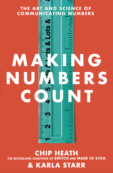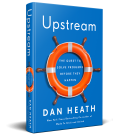Park Howell saw our column about “Triggers” in Fast Company and wrote us with a great story:
In 1999, we created the “Water – Use it Wisely” conservation campaign that was completely built on environmental triggers. I think we were simply more intuitive (lucky) in our approach than brilliant (good) when creating the campaign, but it has stood the test of time and has grown to be the largest educational outreach for water conservation in the world. The campaign currently has more the 350 private and public partners using elements of the program.
The whole concept is based around surprising, but highly effective water-saving devices. Like a toothbrush, for instance. It is a physical prompt that reminds you to turn off the water while you brush your teeth (a razor does the same thing for shaving). The campaign is all about presenting these “water-saving devices,” each with it’s own number to emphasize the main campaign theme: “There are a number of ways to save water, and they all start with you.”
You can check out the campaign here.



